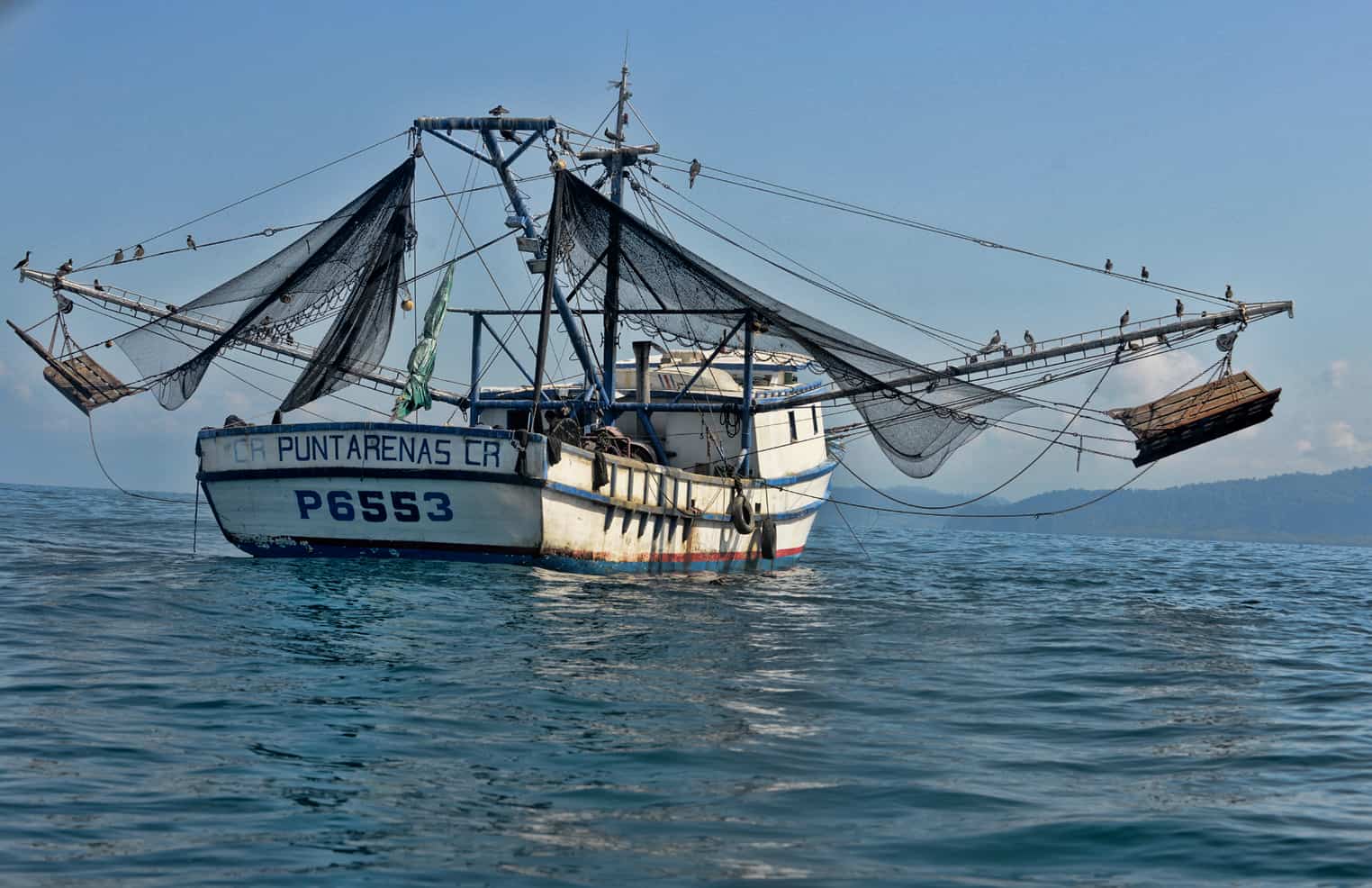Legal shrimp trawling could be returning to Costa Rican waters with a new bill up for debate in the Legislative Assembly. The Bill for the Development and Sustainable Exploitation of Shrimp in Costa Rica, drafted and submitted by President Luis Guillermo Solís’ administration, would allow shrimp trawlers to reinstate banned licenses while the government conducts economic and environmental studies.
If passed, the bill would undercut a 2013 decision by Costa Rica’s Constitutional Court, or Sala IV, which found that shrimp trawling violated Costa Ricans’ constitutional right to a healthy environment and banned fishing authorities from renewing expired trawling licenses or granting new ones. Shrimp trawling – where fishermen drag a net along the ocean floor – is widely condemned by environmentalists for its propensity to destroy the sea floor and its high rates of bycatch (fish caught that do not belong to the targeted species). In its decision, the court noted that if shrimp trawlers could reduce their impact, the practice could be reinstated.
“The tough question is whether or not shrimp fishing could ever be sustainable,” Jorge Jiménez, director of the marine conservation group MarViva, told The Tico Times. “Shrimp trawling as a technique was never designed to be sustainable. If the government can provide studies that show the practice has been made more sustainable, then maybe we could get on board with that, but those studies need to be done before we bring back shrimp trawling – not after.”
In the face of public outcry from environmental groups, the government has insisted that the new bill would not bring back shrimp trawling. During a phone interview with The Tico Times, Waters and Oceans Vice Minister Fernando Mora said the phrase, “It is not shrimp trawling,” no fewer than 13 times. Responding to a follow-up question about what type of fishing the bill did address, Mora said he could not give examples.
Despite the vice minister’s comments, the bill explicitly states that it would allow shrimp trawlers affected by the 2013 Sala IV decision to renew their licenses. According to the bill, the government would then conduct studies to help design sustainable shrimp-fishing regulations.
“We don’t want to ban access to this resource,” Mora said. “Instead, we want to guarantee that it is sustainable, and to do this we need more information.”
The bill is the final product of a shrimp-fishing roundtable convened by the Solís administration in October 2014 to address the future of Costa Rica’s shrimp-trawling fleet. Environmental groups and small-scale artisanal fishing groups, both of which traditionally oppose shrimp trawling, initially participated in the roundtable, but later dropped out.
“There is an opportunity here to transform the fishery into a modern, green pull and line fishery,” said Randall Arauz, president of the environmental group Pretoma, “but we pulled out because no one was listening to us. All anyone wanted to do was bring back shrimp trawling.”
The roundtable’s emphasis on shrimp trawling led Pretoma and 15 other environmental groups to pull out of the dialogue in July, and nearly all the artisanal fishing cooperatives left by November. At its close, the roundtable discussion included only semi-industrial shrimp trawlers, one fishing cooperative and CoopeSoliDar, an environmental development NGO run by Vivienne Solís, President Luis Guillermo Solís’ sister.
This is not the first time Vivienne Solís reportedly has involved herself and CoopeSoliDar in government fishing policy. In an official complaint filed against the president with the government’s Office of Ethics in September and obtained by The Tico Times, two fishermen, whose names have been redacted, allege that Vivienne Solís used her connections with the president’s office to influence public fishing policy.
The complaint accuses Solís of using her family connections with the president to launch a network of community-managed fishing areas last June. According to the complaint, the fishing network benefits fishing organizations associated with CoopeSoliDar. The accusers also urge the Office of Ethics to investigate Vivienne Solís for allegedly using funds, cars and offices belonging to the Costa Rican Fisheries Institute.
The Office of Ethics prohibits the publication of copies of its official complaints, and the President’s Office and the Environment Ministry declined to comment on the ethics allegations.
Meanwhile, the bill has been put on the legislative agenda for the current session and will be debated by lawmakers before the session’s close next April. If passed, environmental groups have pledged to challenge the law in court.
Said Arauz: “Instead of looking to the future they all just want to keep dragging those nets.”






